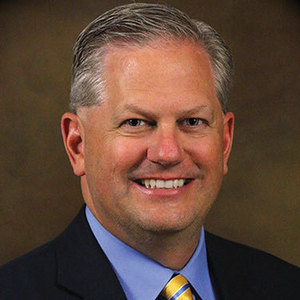Biodiesel Industry Continues Growth through Unified Efforts, Challenges Remain

January 6, 2017
BY Donnell Rehagen
The U.S. biodiesel industry is on a path for growth that continues to make it America’s most widely available advanced biofuel in the country. That growth can largely be attributed to members of the industry coming together under the umbrella of the National Biodiesel Board, where as a collective we are able to achieve more than any individual effort could.
Although we continue to face many challenges, 2016 saw continued bipartisan support for biodiesel in Congress; science again affirmed biodiesel as a significant option for reducing harmful greenhouse gas (GHG) emissions; and state and local policies were expanded and upheld, which will continue to drive demand.
Policy stability is a major driving force for our industry and the end of 2016 brought good and bad in the finalization of the 2017 renewable fuel standard (RFS) volumes and another lapse of the biodiesel tax incentive.
The U.S. EPA’s action to finalize volumes ahead of the statutory deadline for 2017 RFS volumes and 2018 biomass-based diesel volumes in and of itself helps provide stability within our industry. Beyond that, growth in the total renewable fuels and advanced biofuels categories above the volumes originally proposed in spring were a welcomed sign. Combined with a 2-billion-gallon volume for biomass-based diesel in 2017, we are likely to see volumes of biodiesel and renewable hydrocarbon diesel approach 3 billion gallons in the marketplace this year—a record year for our industry.
A key factor in reaching that 3-billion-gallon market potential is the state of the biodiesel tax incentive. Allowed to lapse again Dec. 31, NBB and its members worked exceptionally hard to secure a seamless transition. While we weren’t successful in doing so, with the help of our champions in Congress, we laid the groundwork for enacting legislation to extend the incentive through 2019 and to provide a key reform to a domestic production credit vs. a blenders credit. Under the new Congress we anticipate tax reform talks to heat up once again early this year. And NBB and its members will be deeply involved in those discussions.
While policy stability continues to be a driving force, other efforts at NBB build the foundation needed to convince policymakers that biodiesel deserves their support. This includes market development, OEM outreach, technical support, the BQ-9000 fuel quality program, our environmental and sustainability education, advertising and communication efforts, feedstock programs, and more.
With efforts from NBB and our members, state and regional markets continue to increase demand as they embrace biodiesel. Mandates have grown in Minnesota from 2 to 10 percent. Illinois has reauthorized its tax incentive for biodiesel blends above 10 percent, creating the largest demand for biodiesel of any state in the nation. Couple this with the various biodiesel and Bioheat mandates around the country, and the low carbon fuel standard (LCFS) requirements on the West Coast, and we now enjoy nearly a billion gallons of state-legislated or state-incentivized demand.
In 2016, the U.S. saw more than 2.5 billion gallons of biodiesel and renewable hydrocarbon diesel cut GHG emissions by more than 18 million tons, or the equivalent carbon dioxide emissions of 3.8 million cars. This market supports some $8.4 billion in economic impact, nearly 48,000 jobs, and $1.9 billion in wages paid. However, at slightly more than 5 percent of the on-road diesel pool, there is significant room for growth.
NBB is here to help make that industry growth a reality. NBB should be looked at as your business partner, helping to make your organization more successful. We are your team, and one of our greatest assets is each of our individual members pulling collectively forward to advance the industry. When we do that, our track record for success is proven as our market has grown from 250 million gallons to more than 2.5 billion gallons over the past decade. I urge the entire industry to come together, and stay together, as we grow into the future.
Donnell Rehagen
CEO
National Biodiesel Board
Advertisement
Advertisement
Advertisement
Advertisement
Related Stories
The USDA has announced it will delay opening the first quarterly grant application window for FY 2026 REAP funding. The agency cited both an application backlog and the need to disincentivize solar projects as reasons for the delay.
CoBank’s latest quarterly research report, released July 10, highlights current uncertainty around the implementation of three biofuel policies, RFS RVOs, small refinery exemptions (SREs) and the 45Z clean fuels production tax credit.
The U.S. EPA on July 8 hosted virtual public hearing to gather input on the agency’s recently released proposed rule to set 2026 and 2027 RFS RVOs. Members of the biofuel industry were among those to offer testimony during the event.
The USDA’s Risk Management Agency is implementing multiple changes to the Camelina pilot insurance program for the 2026 and succeeding crop years. The changes will expand coverage options and provide greater flexibility for producers.
President Trump on July 4 signed the “One Big Beautiful Bill Act.” The legislation extends and updates the 45Z credit and revives a tax credit benefiting small biodiesel producers but repeals several other bioenergy-related tax incentives.
Upcoming Events










